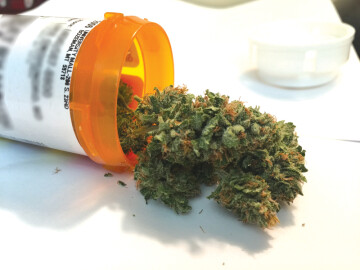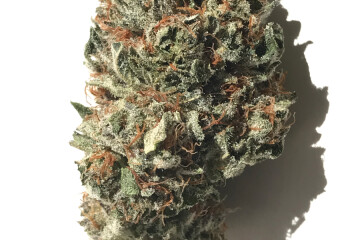Montana Adjusts To New Medical Marijuana Laws
In the wake of passage of a citizen initiative restoring Montana’s Medical Marijuana Program, the Treasure State’s medical cannabis providers are operating in a new business climate.
Uncertainties have plagued Montana’s medical marijuana program since its inception in 2004. The industry dramatically expanded in the state after the election of President Obama in 2008, then suffered setbacks during the 2011 Montana Legislative Session with the passage of Senate Bill 423. Legal maneuvering kept many of SB 423’s provisions from being implemented until last fall, but I-182 restored most of Montana’s medical marijuana rules, lifting a three-patient limit on providers and negating action on doctors who prescribe cannabis to more than 25 patients per year.
Nevertheless, the Aug 31 implementation of SB 423, though negated within months by the passage of I-182, left the state’s medical marijuana providers and patients in the position of having to start from scratch in many cases. Even upon I-182’s passage, a mistake in the initiative’s language meant that changes would not be implemented until June 30 of 2017, but on Dec 7, District Judge James Reynolds ruled that the drafting error should not keep patients from access to their medicine.
“The folks that are the most in need are the least able to provide…to grow their own,” Reynolds said in making the ruling. “I think speed is more important than niceties.”
“I think the judge did the right thing,” said Bozeman City Commissioner Jeff Krauss, who acted as Treasurer for Montana Citizens for I-182. “A few bumps in the road can be expected. It’s going to take a while for providers to get back to having a steady supply, and we need patients to have confidence in their access to medicine.”
Mandy Bateman-Elvrom is one of those providers striving to make certain that patients have access to their medicine. She owns and operates Sovereign Woods on East Mendenhall Street in Bozeman.
“Accessibility and quality (of the product) are important to me,” she said, “because we are serving people who are really taking their health care into their own hands. I want to be serving my customers in a location that’s nice, a place they feel comfortable. I want to be able to always provide high-quality medicine…this is about health and wellness. I am striving to operate a good business.”
Mandy is one of those providers who have literally had to start again from scratch. She decided to go the storefront route to be able to more efficiently serve her customers.
“One of the problems I’ve encountered is the ban on advertising regarding the product,” she said. “It’s word of mouth, basically, but my goal is to be serving 200 customers by the end of the year.” Krauss said that the advertising ban is aimed mostly at billboard-style advertising.
“The ban on print advertising is an interesting speech issue,” he said. “It looks a lot like regulating speech.” He added that the print advertising ban is something that may be looked at by the Montana Legislature in the future.
Other issues facing the medical marijuana industry in Montana are being examined during the current legislative session. Most significant of these is the taxing of cannabis sales. Though Gov. Steve Bullock has suggested implementing a six percent tax, other legislators have suggested taxing the product at much higher rates. Legislators and providers alike are fairly certain that such a tax will become law, but questions remain as to the tax rate and what will happen to the funds the tax will generate.
Billings Democratic Rep. Kelly McCarthy told the Associated Press that she supports a tax, so long as the money is used to regulate that program only and does not go into the general fund. 
“Taxing medications---especially when we have no other example of a taxed medication in Montana---to put money in the general fund, I don’t agree with that,” McCarthy said. Mandy said she also wants to see any money generated from a tax work for the patients and the program.
Providers and legislators are also concerned about what the new Trump Administration may do regarding cannabis, which is still listed as a Schedule I drug and illegal under Federal law. One of those concerns regards Trump’s choice for Attorney General, Jeff Sessions, who has been a critic of marijuana for recreational or medical purposes.
“Is one of Trump’s priorities to shut down legal cannabis? I don’t think so,” said Krauss. “This issue has bubbled up from the local and state level. What I’ve heard is that the President is more concerned with unifying the country. Taking on the entire West Coast of the United States, where marijuana is legal, isn’t very unifying. As for Montana, I hope that I-182 is law for a long long time.”

